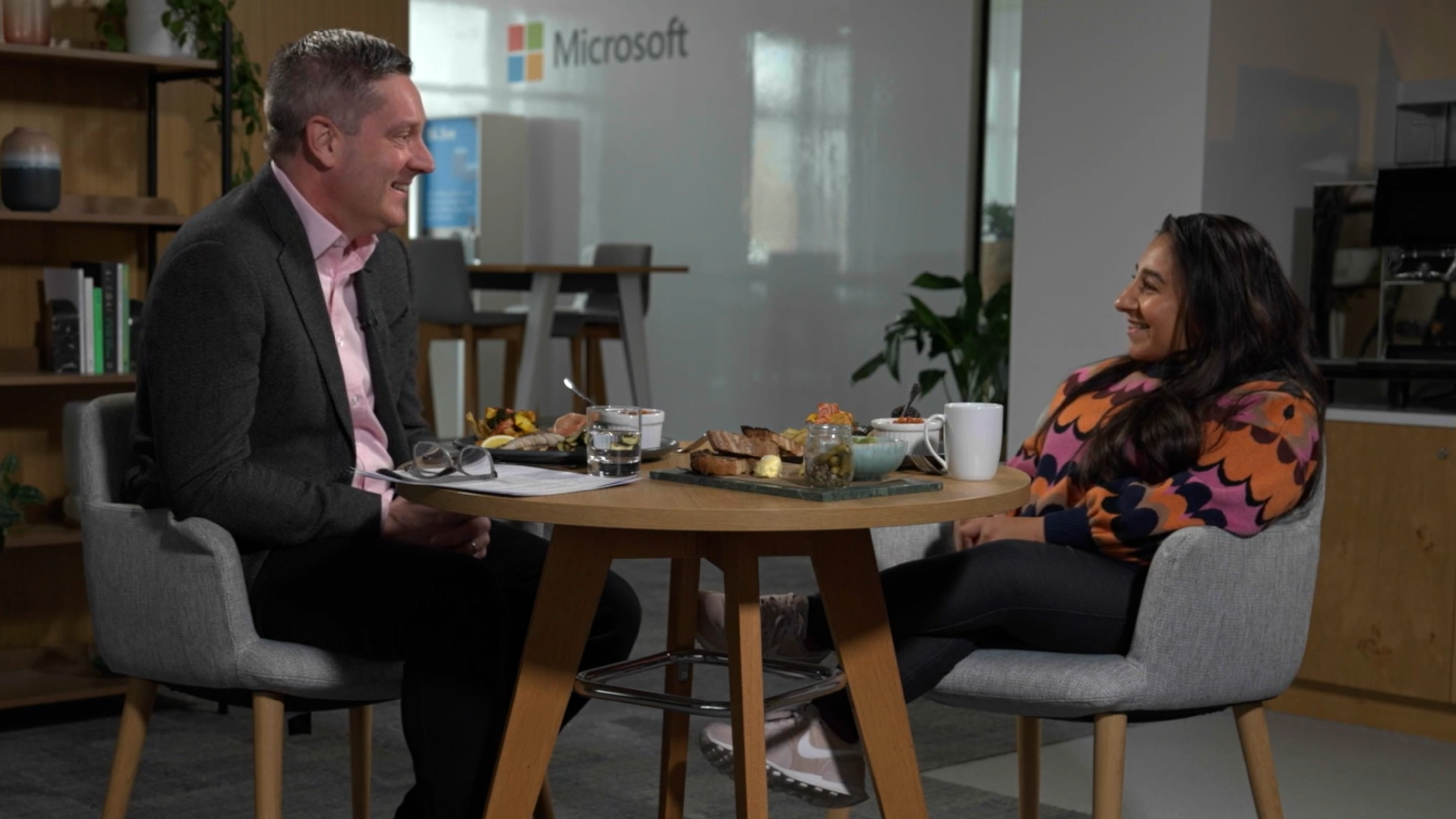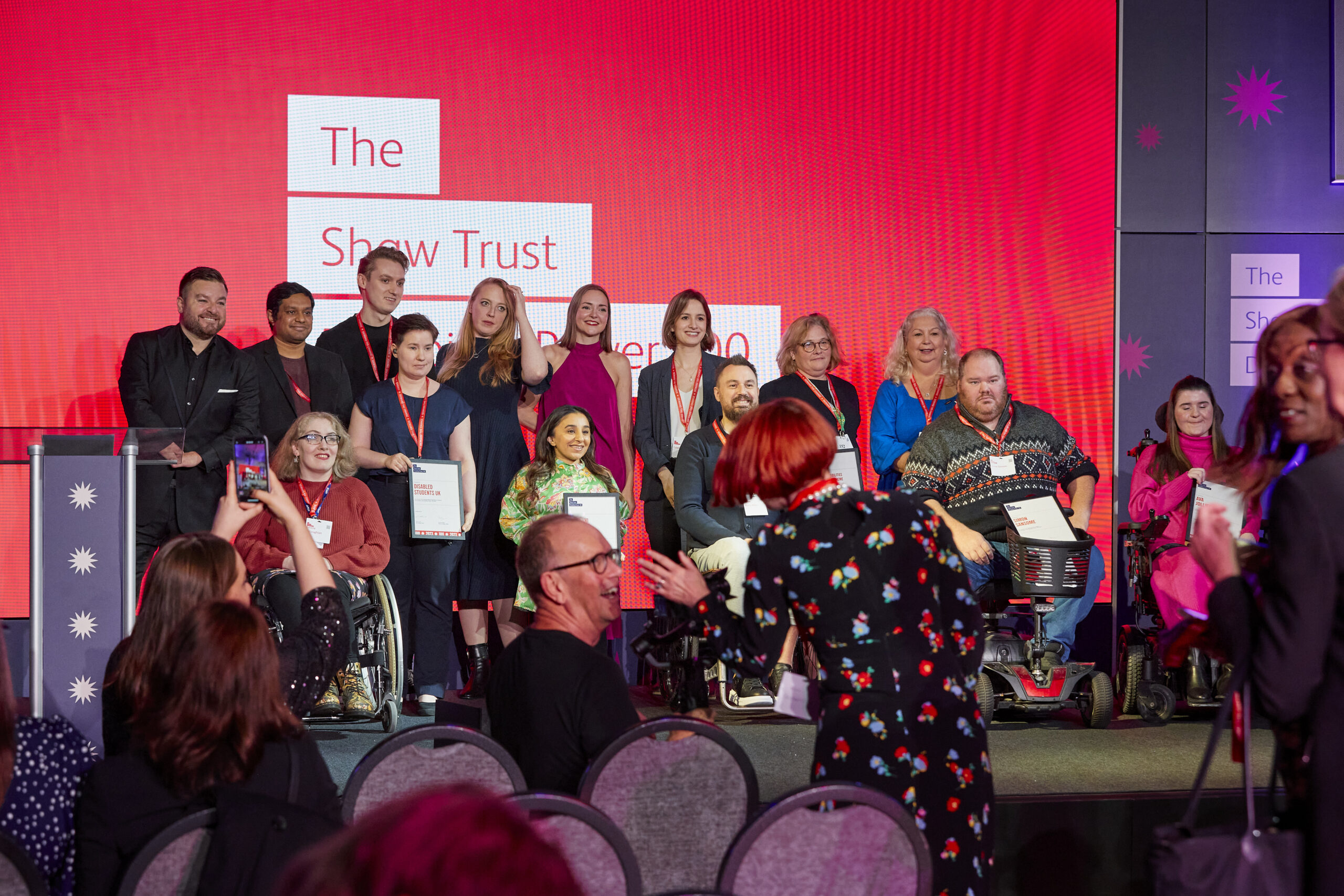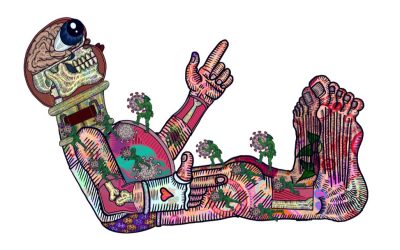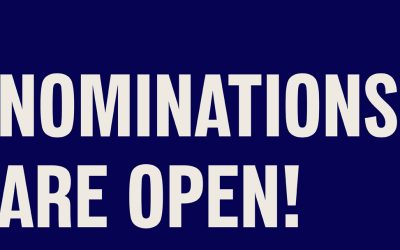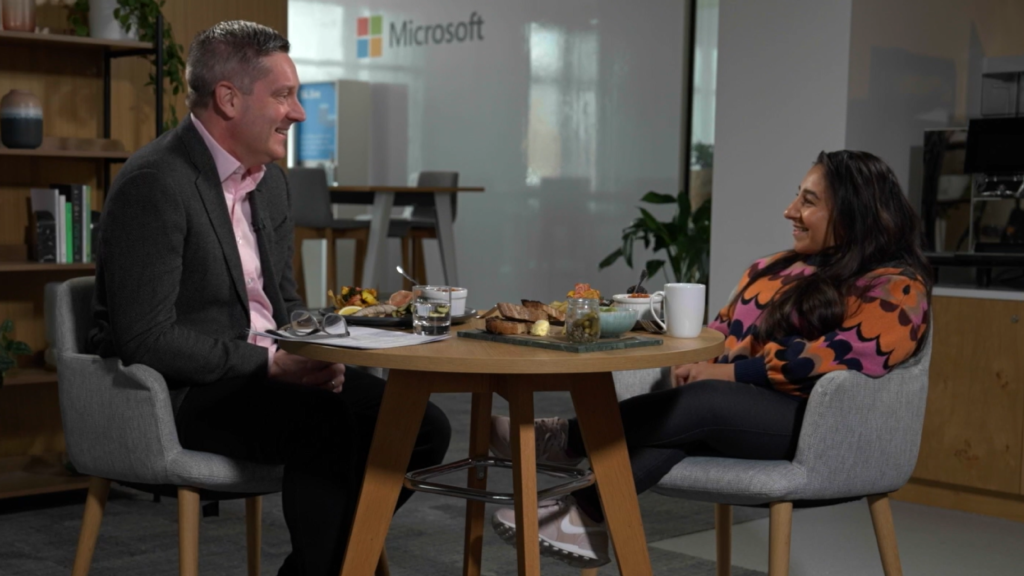
Food For Thought is a series of informative disability advocacy videos.
We’ve brought together three Disability Power 100 advocates, who have been recognised in the top 10 of the most influential disabled people in the UK and Microsoft execs to share their valuable experiences over a spot of lunch. This is your opportunity to learn about the barriers disabled people face when looking for employment. But more importantly, we want to share the solutions to these barriers.
The conversations ranged from how talking about disability on an application letter stopped someone getting to interview to how a simple idea to help a patient in hospital was the start of a business making accessible.
Before the meal
In the first episode, Dr Shani Dhanda met Chris Perkins. Shani is an award-winning disability specialist and one of the UK’s most influential disabled people.
She says, “I’m a big fan of the Microsoft suite, particularly Excel which I use a lot, particularly the built in accessibility features. For me it’s the out of the box features that is where the magic happens, if it’s built in everyone can use it, and it’s not an added extra you have to buy, so I’m interested to hear how Microsoft is innovating new accessibility features.”
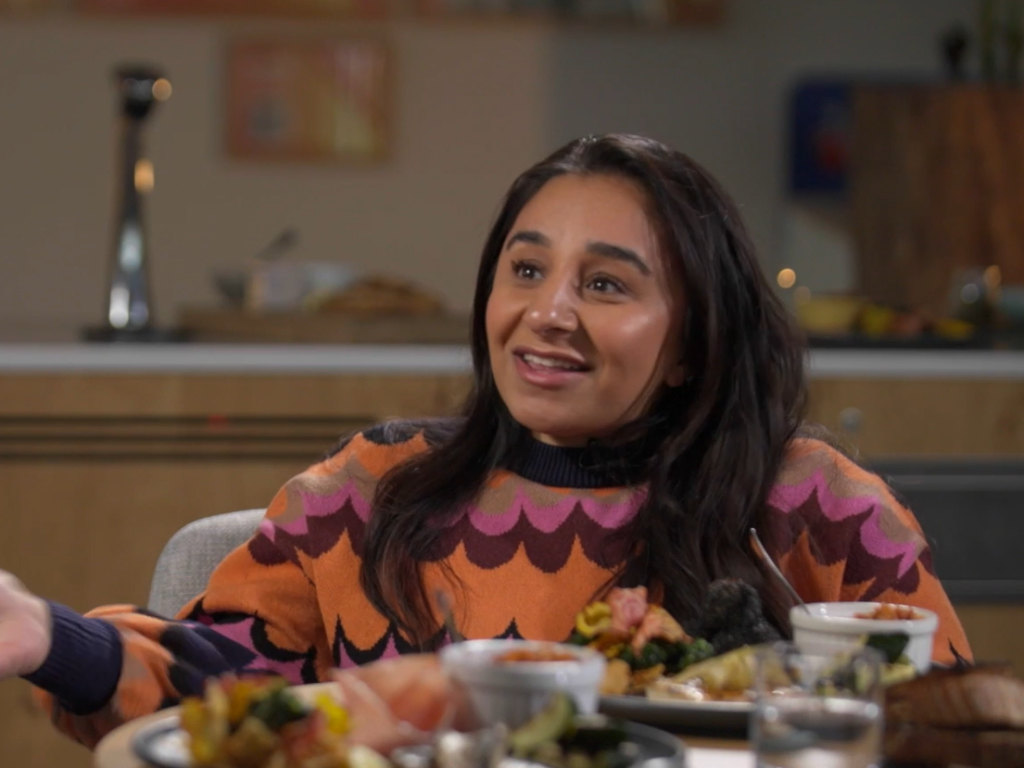
Chris Perkins is General Manager for Microsoft UK Enterprise Commercial. He says, “While I care deeply about diversity, I don’t have personal experience of disability. I think this will be an important opportunity for me to find out more about the issues and talk frankly about how organisations like Microsoft can enhance diversity and inclusion for disabled people in the workplace.”

For starters
Chris
Shani, I’m really interested to understand why you only embraced your disability identity in your twenties – tell me more?
Shani
When I was in my teens, I didn’t want to own my disability identity. Partly because life can be difficult when things aren’t designed for you. But also, I’ve got a mix of identities: South-Asian, Sikh, Punjabi, British – there’s a lot going on there! In the South-Asian community, disability faces an even further sense of stigma, and growing up, people had lower expectations for me compared to other children. Even though I’m able and capable, I was often infantilised.
But then at university I stumbled across the social model of disability, and it completely changed my approach. It made me see that I experience disability when I face a barrier or a bias, I’m not disabled 24/7.
And this is ableism – a concept which describes the social prejudice that disabled people face. It’s a form of discrimination like racism, sexism, and ageism.
The best way to spot ableism is to replace a situation with gender or race. So, for example, if buildings made it impossible for women to enter that would be sexist. But the fact that it happens today to disabled people means it’s ableist. I think we live in a really ableist society and that’s what I’m trying to change.
Chris
One of the things that struck me is how often blockers and biases imposed by others make life harder, often more than the disability itself. It was profoundly eye-opening finding out about self-limiting behaviours and internalised ableism.
Shani
Everyone has self-limiting beliefs, but disabled people live in a society that constantly views you as ‘less-than’.
Do you know, when applying for jobs, I used to include a sentenceinclude sentence on my covering letter saying I had a condition, but that it didn’t affect my ability. I applied for over 100 roles with that cover letter and didn’t hear back from any. But when I removed that sentence, I immediately got an interview. I learned a lot from that.
The main meal
Chris
So what can employers do more of to support disabled people when there is this stigma?
Shani
Employers just need to understand disabled talent is so untapped – the costs of employing a disabled person are low and are hugely outweighed by the skills and experience the candidate brings.
At interview employers still ask the wrong questions – what’s your medical history? They’re employers, not doctors. All employers should be asking is ‘what are the barriers and how can we remove them?’ Because every decision that we make either can raise or lower barriers to participation in society.
Employers need to get over their fear about employing disabled people, see the talent and skills they bring.
Just desserts
Shani
Disabled people are a forgotten market. There is such massive spending power for products and services for disabled people, and tapping into that will make businesses more resilient, profitable, and inclusive.
Do you know there are more clothes designed for dogs than disabled people?
There are some amazing retailers out there who have done some really great things for disabled people. But they don’t shout about it, they are scared about a backlash if they miss something – if all their stores aren’t accessible, for example.
My view is that if their intent is to be accessible and be fully inclusive, I think that’s okay. Organisations need to lean into their discomfort around disability and inclusion, and go there anyway.
Takeaways
Chris
I’ve taken away three main messages. Firstly, we need to be fair and inclusive in how we identify talent and talk more about the positive work we are doing on disability inclusion.
Another thing that really struck me was our discussion about ableism and the importance of not making assumptions and judgments about disabled people.
Thirdly we need to be more open, take positive action and be confident about talking about our achievements, even if it’s not a perfect story, we need to share we are on that journey. It is easy for others to throw stones at organisations but if our intent is good and we’re taking positive action then we should talk about it and keep going.
This was a great opportunity to understand the challenges disabled people face I might not have considered – and making sure we as an organisation try to make life easier.
Shani
It was great to talk to Chris and share my insight into how it is important for employers to be on the inclusion journey, which will make organisations more resilient, productive and profitable.
By sharing my experiences I hope Chris now has a broader and deeper understanding of some of the barriers disabled people face because of people’s biases.

